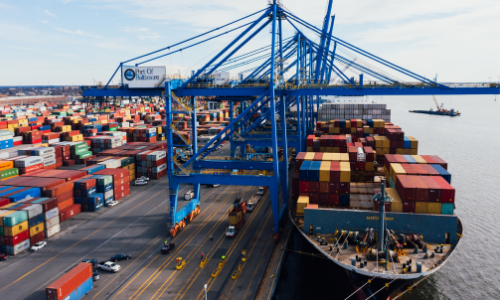Take a look at the HR challenges in Logistics
The HR challenges in logistics carry unique HR headaches: complex shift patterns; long working hours; skills development and tough regulations. Covid has led to burnt-out employees and driver shortages as well as supply and demand issues which means that HR headaches are cropping up now more than ever.
Read on to find out more about the biggest HR challenges in logistics and our top tips for resolving them.
We provide HR and employment law support and advice to businesses in logistics.
Shortage of Workers and Skills
There is a shortage of skilled workers and a prediction that by 2030 there will be a global talent shortage of 85 million workers. That is only 8 years away! If this proves to be true, problems facing businesses in 8 years are likely to be a burden greater than we’ve faced so far. In logistics, where there is already a worker shortage this will only worsen and make the industry even more difficult.
Employers need to start taking steps now to improve recruitment, train staff, and upskill workers in order to remain competitive. Loyalty to a business is likely to be crucial for employers in years to come.

The logistics sector has seen a huge shift in recent years to a requirement for technology-related skills and workplace automation has led to an increase in demand for technology-savvy staff. Whilst the technology requirements are likely to increase rather than decrease, it’s imperative not to alienate the middle-aged or older workforce who may still be key staff members of the coming 3-8 years.
Recruiting and training new recruits at the start of employment can fill gaps in the recruitment market and enable businesses to access previously untapped skillsets.
Reminder: a contract of employment can include a claw-back clause in regards to the training fees if the employee was to leave within a set number of months/years.
Burn Out
The number of burnt-out and depressed employees has hit an all-time high following the pandemic and continues to rise with the ongoing effects of prolonged periods of home working. Albeit those drivers are not subject to home working, the effects of the last two years and additional pressures on drivers are likely to have an impact.
Mental ill-health is a concern for all businesses and it is always better to identify and resolve concerns earlier, Employment Law Solution’s Burnout Guide will help you identify and manage early signs of some mental ill-health.

Failing to acknowledge mental ill-health as a serious concern can have huge implications for a business. Ultimately, employees who suffer a detriment, from less favourable treatment to dismissal, because of their mental ill-health may have the ability to bring claims in the employment tribunal, for example, disability discrimination or constructive dismissal. When considering how to deal with employees who have poor mental or physical health you should always take advice and consider your obligations to them.
Further, HR should add positivity and enforce proper procedures across all areas of the business to continue managing stress at work.

Driver Morale Issues
Drivers often have long periods away from home carrying out work on their own in isolating conditions. Increase in traffic (congestion and management) as well as other distractions when on the road mean that HGV drivers are at much higher risk of facing low morale and being disconnected from the rest of your workforce.
HR teams should work on the feel of a business’s culture and ethics. Even where staff work remotely (home or in lorries) they can be made to feel part of the team. The logistics sector is likely to face a crisis of employee engagement in years to come and it’s imperative that HR teams work on this now.
Communication should be frequent and fluid. An individual should be informed how his objectives feed into the overall goals for the company and staff should be championed.
Pay Squeezes
Increases in fuel, vehicles, and just about everything else(!) has created a squeeze for businesses. Many logistics businesses are looking for ways to cut costs rather than increase salary overheads. That being said, pay alone is not usually the be-all and end-all of whether a person is happy in a role or not.
As well as ensuring good morale, HR teams could consider all-encompassing employment packages offering additional holidays, gym membership, employee incentive schemes for example.
The biggest cost saving for businesses is in reducing employee turnover, reducing new employee training, decreasing absenteeism and decreasing forced overtime. A happy workforce is much cheaper and less draining on management resources and time. HR teams should not underestimate the cost-benefit of maintaining a happy workforce.
“We’re delighted to support the HR director and senior management team at Kinaxia.”
Let us help cure your Logistic HR Headaches
Let us help with any HR headaches, no problem is too big or too small. We’re always happy to help. Call now for a free consultation or email us to arrange a time that best suits your business.
Call us on 01270 781 006





